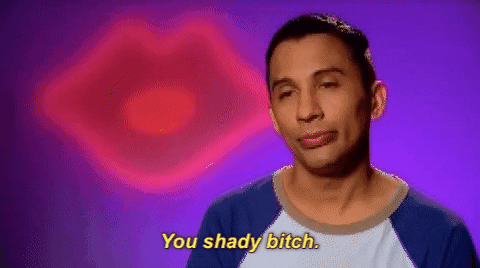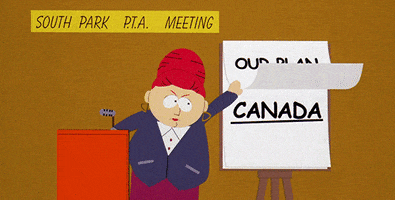For me, 2021 is all about adding massive amounts of content to my sites.
I’ve got several sites that I intend to sell by January 2022, and to reach the goals I’ve set for those sites I have to add more content to them.
Sounds easy enough, right?
Yeah, I thought so too.
I’ve been outsourcing content three places this year – with WordAgents being where I spent most of my money so far this year.
My content expenses through April 2021 have been averaging around $6,000/mo. thus far.
But for now, I’m halting all content outsourcing, at least temporarily.

Because I need to completely change the way I’ve been going about it.
All Plagiarism Checkers Are Garbage
Let’s start at the end, shall we?
You can’t trust plagiarism checkers. Like at all.
And I just learned this the hard way, after spending a lot of money on content that somehow passed Copyscape.
You see, that’s one of the reasons that I’ve always felt comfortable using agencies that promote that they use Copyscape, because I thought it protected me from plagiarized content.
But here’s the thing – I never realized just how easy it is to pass Copyscape with plagiarized content.
It’s a false safety net.
Apparently, you can just change only one to two words with a synonym and you get 100% passing.
This is true with:
- Copyscape Premium
- Grammarly Premium
- quetext.com
I’ve now spent an entire afternoon raging about this.
Both because I didn’t realize it was this easy for writers to fool Copyscape and because I can’t believe that I didn’t already know this.
Maybe you already knew this.
Maybe you don’t really give two shits about it cause the content will rank anyways.
You SHOULD care about it though.
Why?
Negative SEO.
If you have a writer who swipes the opening sentence from one of your competitors and only changes two words, how do you think that competitor is going to react (especially if you take their rankings)?
Best case scenario, they send you nasty email.
Worst case scenario, they make it their life’s mission to take your ass down.
How I Realized Plagiarism Checkers Are Useless
So, last month I dropped around $7500 on content at WordAgents. And since so many articles were going to be coming in, I recruited my wife to look over them before I published them.
She had also done the keyword research for me on some of the articles and looked at a lot of sites in that niche.
Basically, she was well-versed in the subject matter, so I knew it’d be faster for her to take the lead on those titles.
Imagine my surprise when she informed me that one of the articles had an opening sentence that was almost identical to a competitor’s site.

I told her that wasn’t possible because WordAgents guarantees that the article passed Copyscape.
Then she showed me the two articles.
Here’s a screenshot of the competitor site’s opening sentence:

And here’s a screenshot from the completed article that I was sent:

I can’t believe just changing two fucking words resulted in this passing all the plagiarism checkers.

And I can’t believe that I paid $55 for that article only to discover this.
And I may never have known if I’d just posted the article without knowing the niche or having someone check it.
How many other articles on my sites are just like this one?
Think about it – writers can be paying for Copyscape and see just how little they have to change to get copied content to pass the plagiarism detection.
It’s Not The Content Agency’s Fault? Or Is It?
On the one hand, I can’t really blame WordAgents for this (or any other content agency) because they promise to pass Copyscape, and they amazingly did that.
Even if you only paste that first sentence into Copyscape, it still fucking passes.
So, in reality, WordAgents gave me exactly what they said they would – an article that passes Copyscape.
But, those articles are also supposed to go through an editor before coming to me.
Shouldn’t the editor have caught that?
I would think so? But who knows.

The reality for me is that this is unacceptable, so I’m stopping using WordAgents immediately.
I’ve had other issues with the content that I’ve been getting back from WordAgents in recent weeks, which makes the decision easier.
This isn’t a WordAgents review, so I won’t go into those details in this post.
But this isn’t just a WordAgents problem for me. I’m also stopping using all content agencies for the time being because I can’t trust anyone using Copyscape as proof of original content.
So, how do you solve this problem?

You can’t just hire writers direct and use any of these plagiarism detection tools to keep them honest. I’ve already seen that those tools are hot garbage.
And how do you find some writers trustworthy enough to not fuck you over to begin with?
I honestly don’t know what the best solution is to this problem.
I don’t even think you can pay people a really high amount and have that be enough to insulate you from this fuckery.
Though having someone’s livelihood dependent upon you is a good place to start.
So, for the time being I’m not outsourcing any other content for my sites until I figure this out.
And I apologize for the recommendations I’ve made to you in the past.
5/25/21 update: I had a conversation with Heather White of Writer Access about how they handle writers who plagiarize and learned that they take it quite seriously. If you think you have plagiarized content from one of their writers, it gets investigated immediately because they have a zero tolerance policy for it. They even randomly audit orders to check for all sorts of content issues, kind of like those old school mystery shoppers except for content orders.
January 2022 update: I’ve been using Niche Website Builders for content with good results.
Hey, I’m Shawna. I make a living working from my laptop in places like London, Sydney, Dubai, Rome, Oslo, Bangkok, Las Vegas, Barcelona, and Amsterdam. I share how I do some of that on this website.

I guess the only way to keep up with this stuff is to hire an extra editor.
Let them do nothing else but google your KW and compare the top 10 results with your article.
Painful, especially when you are publishing twice a day 😉
I slowed down a lot on ordering content from agencies.
Too much mediocre stuff…
Wow appreciate the honesty in this post. But really how is one supposed to receive genuine content from these agencies? They’ve got so many clients from different niches that all they do is publish content very quickly which is never better than the competition.
I’m sure they always research the top 10 results for a given keyword and just copy & rewrite what they find. I guess the best way to publish content on a certain topic is to hire someone who is an expert in that field.
At the end of the day, it’s all about how much money you’re willing to pay a freelance writer to do an honest and proper job. You’re not going to get original content, that’s researched and written well for .01 per word or even .03. Think about the time involved.
Even if you hire non-native speakers from poor countries. Their English is usually poor and many of them plagiarize anyway just to get the work done. Although Native English Speakers can also be guilty of this as well.
If it were that easy to crank out high quality and original content, then wouldn’t we just be doing it ourselves?
This coincidently links in well with your recent post on “AI” writers…SEO’s are always looking to scale for as little money as possible and plagiarism is one of the biggest risks….Writing is a tough gig, SEOs prefer to be publishers and not writers, I get it. But content and writing is at the very core of what we do.
I originally got into this game as a freelance writer myself and soon realized that compared to how much people were willing to pay me for my work, I could just create my own websites and write what I wanted to write without having to deal with cheapskate SEO clients.. Though, it’s definitely a long game…
But Shawna, obviously you’ve been doing something right over the years and most of it I assume has been with outsourced content. So why stop now? Isn’t it a little late for that? What are you going to do, pour through all the content on all your sites and delete anything that has been plagiarized?
Anyway, I hope you find a solution to this dilemma of yours and it would definitely make for a good read once you do)
Thanks for such an honest post.
Best of luck!
I also have a history of being a freelance writer, so maybe I’m just harder on these agencies/writers. I’ve also always written most of my own content and really only scaled up the outsourcing in the last 12 months. That being said, I don’t think it’s too much to expect of someone to do their job properly (regardless of what they’re getting paid). Especially when I’m paying for a service that touts proofreading & plagiarism checking as part of the package. I think there has to be a better solution. I just haven’t found it yet, but I’m working on it 🙂
I think one effective way of finding writers that don’t fall into this plaque is hiring writers with no SEO background. Most writers under WordsAgent probably know their way through Google and how to manipulate other articles to make it super “unique”. Probably why some get good results with college kids, especially those with literature background. They are taught how grave plagiarism is in school so they do their “research”. I’m also surprised you didn’t know the Copyscape trick.
That’s a good point. And I did have some high school students writing for one of my sites for a while and you’re correct, I had zero problems with them.
I think the solution to avoiding plagiarism issues is to stop using content farms. I work with writers directly through UpWork and develop long term relationships. Building that trust is important. You may pay a bit more overall in some cases, but it saves you time from having to check their work in such detail. Plus, by cutting out the middle man, you can get higher quality writers at the same cost or even cheaper than a content farm.
One advantage is that it gives you the ability to get to know your writer, and give them projects based on their strengths. In many cases, the project will take a life of its own as writers get deep into topics and discover things worth writing about which may not have been on your radar. On top of that, if a project ends, it’s easy to plug someone into a new writing project if the article formats/templates you’re using are the same.
Yeah, I think you’re right. Though I never really considered places like WordAgents content farms…until I recently researched how much those writer get paid compared to what I was paying. I’m currently testing finding writers via the Cult of Copy Job Board group on Facebook. I’m hoping that ends up being the solution I’ve been searching for.
“But, those articles are also supposed to go through an editor before coming to me.
Shouldn’t the editor have caught that?”
How can an editor catch that? Do you think they read all the competing articles in google for every topic to figure out if the writer plagiarized or not?
And even if they did that, what happens when the writer plagiarizes an article from Google’s second page or from other source?
If the software can’t catch that – and they can’t – a human editor has no chance. The job of an editor is to ensure the article is well structured, reads well, catch typos, etc.. not a chance he will be able to read all the competing articles on the off-chance it will run into plagiarism.
If a writer is determined to re-hash content and hide it well, there’s not much you can do other than fire him once you caught him once.
Copyscape is indeed not the best to check for plagiarism.
I think there are two tools that are better and go deeper to check for plagiarism :
– Chegg
– KillDuplicate